Karla was released nationwide, though it was not shown in the areas where the crimes had actually occurred, out of respect for the victims and their families. I can recall a fair amount of debate about whether or not it was appropriate to see a film (and thus support its creators financially) about such tragic, and unfortunately real events. I watched the movie out of sheer curiosity, having followed the story as many other Canadians did at the time; after all, it was a sensational case, and the media was eating it all up, in spite of a Canada-wide publication ban until legal proceedings had ceased.

The film opens with a narrated letter to Karla (Laura Prepon) from her psychiatrist, Dr. Arnold (Patrick Bauchau). Having served 8 years of her 12 year prison sentence for her part in the abduction and murder of Tina McCarthy and Kaitlyn Ross*, she will soon be eligible for parole, pending an extensive evaluation of her current mental state. Surrounded by the imposing atmosphere of the prison, the two make small talk as though they are old friends meeting over coffee. Karla informs her doctor that she has recently obtained her degree (in Psychology, from Queen's University in Kingston, Ontario) via correspondence, and he commends her on this accomplishment before directing their conversation down darker avenues. He presents her with a photo album full of pictures of her ex-husband, Paul Bernardo (Misha Collins), and she begins to tell him how they came to fall in love.
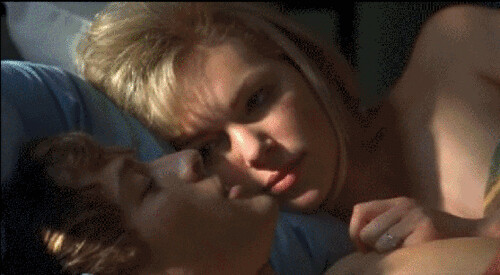
Paul and Karla meet at a hotel bar while she is attending a pet care convention on behalf of the pet store she works for. Hours after they meet, she brings him up to her room for a night of wild sex, while their friends look on uncomfortably. Soon after that night, Karla brings him back to her parents house for even more sex, and produces a set of handcuffs for Paul to place on her.
"What if I were a rapist?" he asks her, after binding her arms and pushing her down on the bed. "That'd be cool," she replies, her voice a sultry whisper. The film ends with a white-washed, lazy zoom in on Karla's face. She is staring straight ahead, eyes blank, while her voice provides a narrative in which she bluntly states that she is not a psychopath.
If I didn't know anything about the actual case of Paul Bernardo and Karla Homolka, I would probably say that this was a satisfactory movie. It was reasonably well-filmed, adequately-paced, and decently-acted. The material was violent, and at times even downright disturbing. The film definitely had a low-budget feel to it, like a made-for-TV movie, but in spite of that, I still found myself on the edge of my seat a number of times as I watched it. Also, I must admit that I was anxious to see what That 70's Girl would do with such a meaty role as that of Killer Karla.

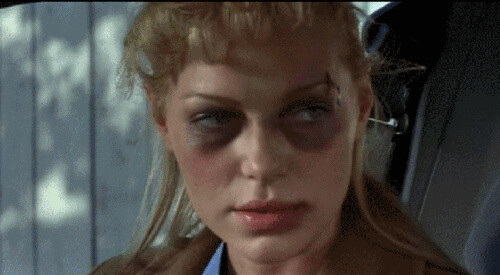
While I must give credit to Laura Prepon for successfully swabbing her 70's show character from my brain while I was engaged in this picture, I don't think she was the right choice for this role. Physically speaking, Homolka and Prepon look nothing alike: Prepon being tall with an athletic build, while Homolka stood much shorter in stature and was by most accounts rather "diminuitive" looking. Homolka was also much more of a girly-girl than Prepon, who at times seems almost masculine to me, with her husky voice and deadpan delivery.
Moreover, both of the young women who played the victims of the gruesome twosome, Kristin Honey and Sarah Foret, outshone all the other players in this film by far. The two girls did an extremely good job making such utterly agonizing situations appear real enough for the viewer so as to gain their sympathy. Sarah Foret stood out a little further in her role, her star shining even more brightly, perhaps due in part to the fact that her character had more time with the Bernardo's on-screen, as well as in reality.
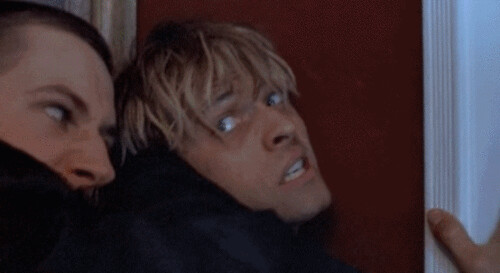
Misha Collins was acceptable in the role of Paul Bernardo. I had a hard time believing him as a serial rapist-slash-murderer, but that was part of Bernardo's thing in the first place: the fact that nobody could believe that such a "normal," even charming man could do such terrible things. He was the boy next door! Collins' role was clearly secondary to that of Ms. Prepon, and really didn't factor all that heavily into the overall feel of the film. The movie is named after Karla, after all.
Given that I do know a considerable amount about the case (due mostly to Stephen Williams' book Invisible Darkness), I found it absolutely appalling that the filmmakers decided to portray Homolka in the same manner in which the Canadian justice system had: as an unwilling participant in her husband's heinous crimes, after having been verbally, psychologically, and physically abused into submission. In spite of mountainous evidence to the contrary, Karla Homolka has been victimized as much in this film as in the courts and media. Clearly, I was very disappointed. Clearly, I was expecting a fresh (and perhaps more accurate) point of view.
2/5 Kitty Skulls = This movie should have been aborted in the first trimester.

*******************
ENDNOTES
*******************
* Substituted for the names of the teenage victims. The name of Karla's psychiatrist, Dr. Arnold has also been changed.








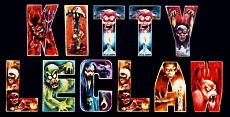
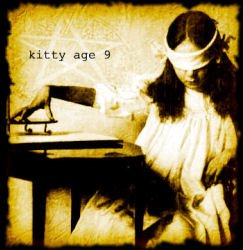








3 comments:
I'm going to keep my hopes up. Even though the media and the courts turned Homolka into a victim, I think the average person on the street never bought it. It's possible people will come away from this movie remembering what an evil bitch she really was/is. And those who are too young to remember when it happened might come to the same conclusion. She absolutely does not deserve to be free.
This film sounds pretty damned problematic. I have a tough time with True Crime cinema in general and have even avoided the much-lauded "Zodiac" film that just came out, in spite of my interest in that case. True crime docudramas always feel like you're sitting next to that guy who's always reminding you that PEOPLE REALLY DO GET KILLED when you're watching a slasher flick.
Still--thanks for the write-up; you leapt on a grenade with this one that I'd be unwilling to leap upon, cupcake :)
Pudding Monkey: I suppose the system could have re-evaluated the deal they had made after the tapes had been discovered, but governments are not usually very good at publicly admitting their incompetence. Just lay low, and everybody will forget after a while (which, basically, they have).
Kate: Did you not know? Leaping on grenades is one of my favourite passtimes! I think I ultimately chose to post about this movie because of the lack of material out there in the blogosphere which treated this title as a film. While difficult to do, I tried to remain objective, and discuss it as I would any other movie.
Re: "People really do get killed," I think I have a hard time with the the whole "exploitation" generalization due to that fact. However, most horror is based on reality (to varying degrees), and humankind has always been fascinated with death, and also with our own capacity for evil.
Post a Comment